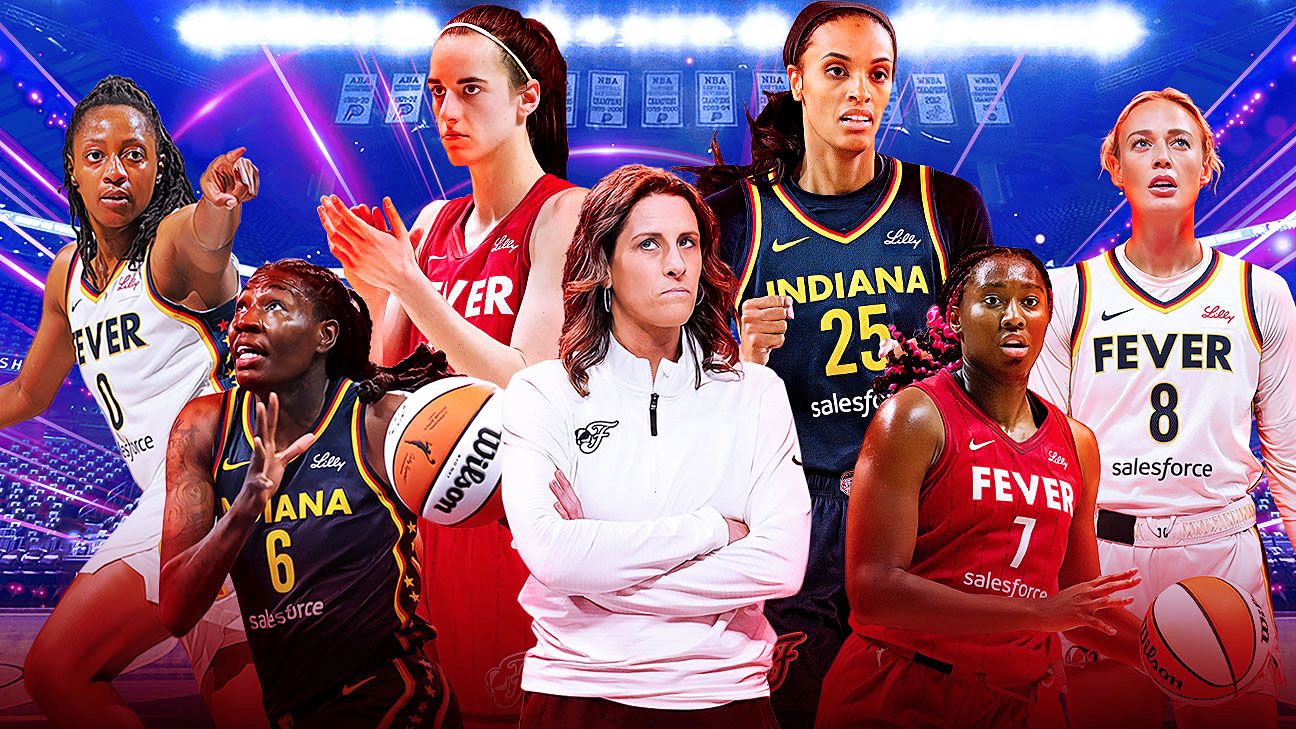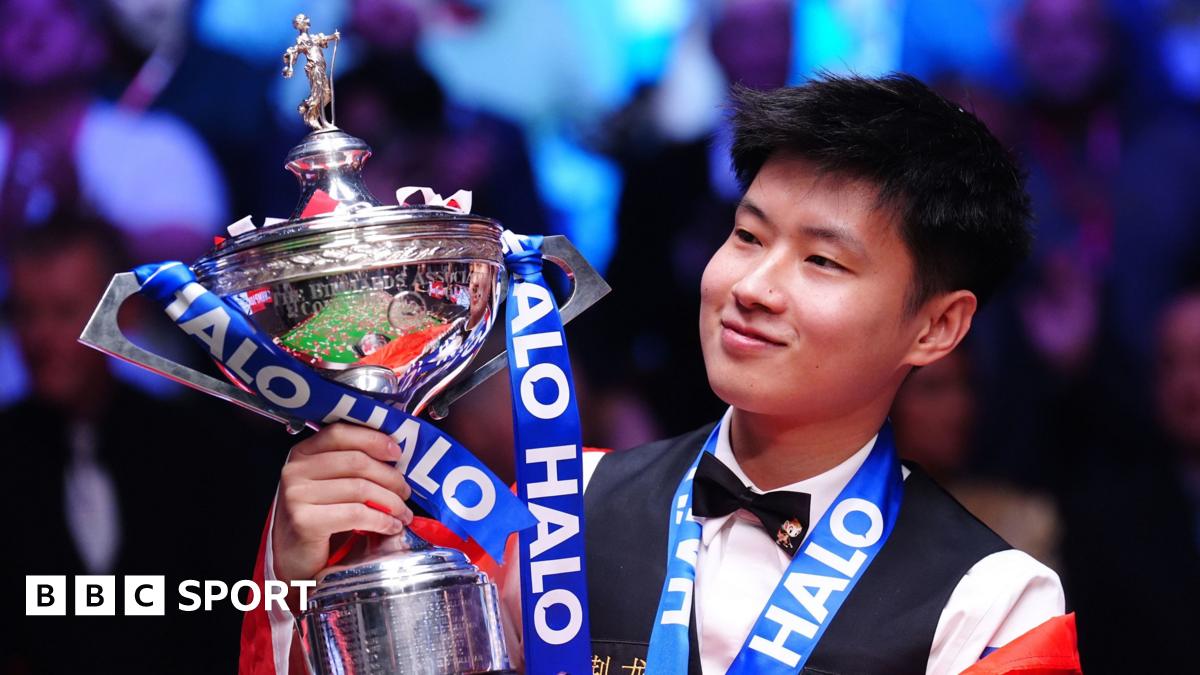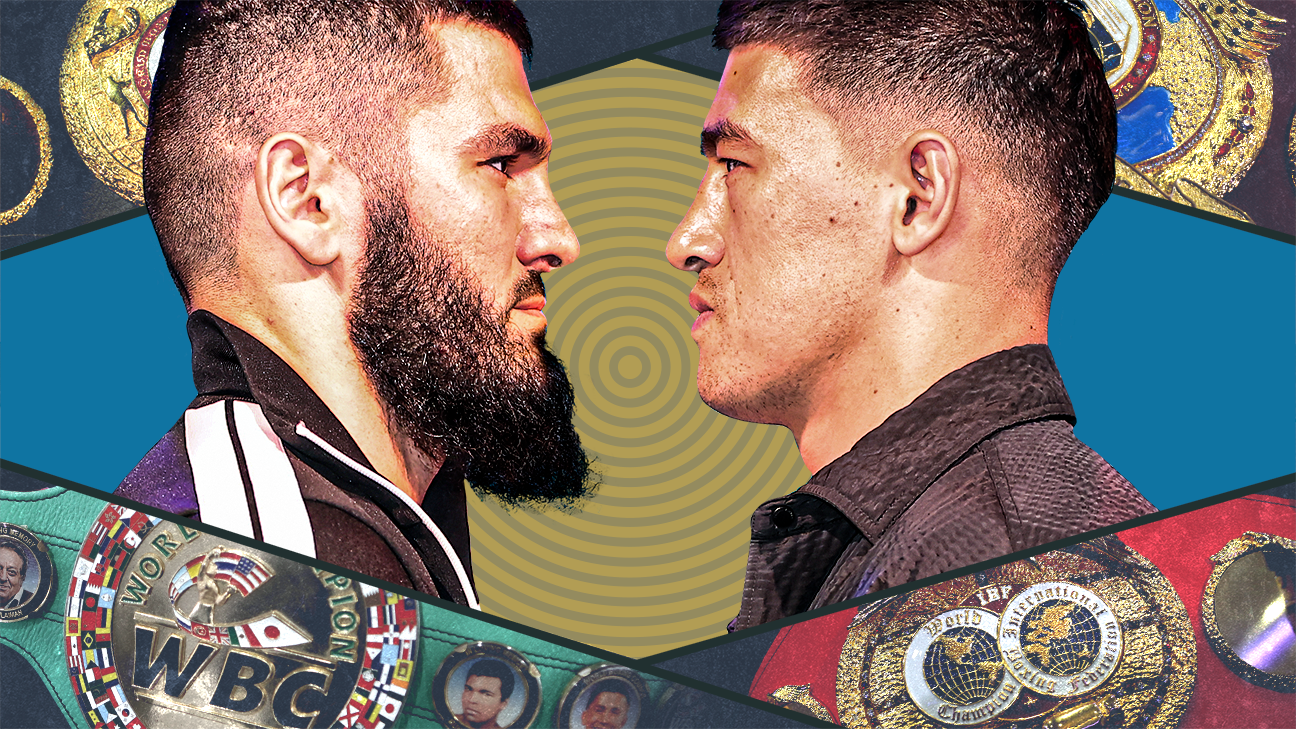
Myron MedcalfMar 27, 2025, 07:05 AM ET
- Covers college basketball
- Joined ESPN.com in 2011
- Graduate of Minnesota State University, Mankato
Almost exactly one year ago to the day, Kentucky athletic director Mitch Barnhart and then-head coach John Calipari sat down for a joint interview on a local television station after the team's second first-round exit from the NCAA tournament in three years.
Barnhart had already announced Calipari would return for another season but reports of a frigid bond between them remained.
"He's been married 40-plus years. I've been married for 40-plus years," Barnhart said during the March 29, 2024 interview. "We know how to manage relationships. And I think we've been together for 15 years, so we're sort of, like, semi-married."
But nine days later, the two sides had divorced.
Calipari's surprising departure for Arkansas set off a domino effect that rivals anything college basketball has seen over the past decade.
For the Razorbacks, Calipari was a big fish -- a name brand with a national title -- but he also hadn't been to the Final Four in a decade.
Meanwhile, coaches with noted legacies such as Dan Hurley and Billy Donovan were floated as potential successors at Kentucky, which is why Wildcats fans threatened to revolt when they signed Mark Pope from BYU. Then BYU turned to an NBA assistant with minimal collegiate coaching experience, Kevin Young, to replace Pope.
At the outset, supporters of all three programs wondered what would happen next. Now they know: With Arkansas, Kentucky and BYU all headed to the Sweet 16, this was a rare chain reaction in the coaching carousel that has seemingly benefited everyone involved.
Despite dealing with injuries early in the season and an 0-5 start to SEC play, the Razorbacks finally hit their stride late. Upsets over 7-seed Kansas and 2-seed St. John's on opening weekend of the NCAA tournament have given the impression that Calipari is, in fact, back. His replacement in Lexington, Pope, snagged eight wins over top-15 teams during the regular season and erased the bad taste from the program's recent run of early NCAA tournament exits with this trip to the second weekend. And his successor, Young -- who earned a commitment from the No. 1 recruit of the 2025 class, A.J. Dybantsa, shortly after he was hired -- seems ahead of schedule with a Cougars squad that has made the Sweet 16 for the first time since Jimmer Fredette led them in 2011.
Let's take a look at how each of these dominoes has fallen over the course of this season.
To see Calipari in his Arkansas red blazer at last April's introductory news conference after switching schools -- but staying in the same conference -- was akin to seeing Roger Clemens in a Yankees uniform, Jerry Rice with the Raiders or John Cena turning heel.
But it was well known Calipari needed a fresh start. Losses to Saint Peter's (2022) and Oakland (2024) in the first round of the NCAA tournament had robbed him of the edge he once enjoyed as the king of the one-and-done era. But Calipari kept his charm. And he would need it at Arkansas.
The Razorbacks had been to the mountaintop and won a national championship in 1994, but a return to the title game a year later was the last time they had been within reach of another ring. That's why Arkansas swiped right on an elite coach searching for redemption.
"[When] you talk about some of the best jobs in the country," Calipari said then, "in basketball, this is one of them."
How he would restore the program to its former glory still remained a question.
With an NIL coffer full of cash thanks to his billionaire friends, Calipari started to answer by signing promising talent: D.J. Wagner had once been the top recruit in America. Johnell Davis had been a star for a Florida Atlantic team that reached the Final Four in 2023. And Boogie Fland, a five-star recruit and top NBA prospect, decommitted from Kentucky to follow Calipari to Arkansas.
But preseason injuries made it difficult for Calipari to even hold practice. Then Fland and Adou Thiero, the team's top scorers, sustained major injuries. That's why it took four months -- and a few recoveries -- before the team found its rhythm, following the 0-5 start to SEC play with a respectable 9-6 stretch to close the regular season (including a win over his former team and Pope). They bonded, Calipari said, through the adversity to eventually make this run to the second weekend of the NCAA tournament.
"To be where we are, still playing and still fighting and having fun," Calipari said after his team's second-round win over St. John's. "I'm enjoying it. Like I said, I'm not going to let anything faze me in this."
Though Arkansas got the biggest piece of this coaching puzzle with Calipari choosing to leave Kentucky, his former school did not -- at least initially -- feel as fortunate.
As Kentucky searched for a head coach for the first time in 15 years, highly coveted targets declined. Baylor's Scott Drew and Alabama's Nate Oats released statements that they wouldn't leave their schools while other big names (see: Donovan) never moved past the rumor stage.
That's when the school turned to a familiar face: Pope, a captain on the Wildcats' 1996 national championship team. But the backlash was real.
A prominent booster called Barnhart after he announced the hiring of Pope, who hadn't led BYU past the first round of the NCAA tournament, and threatened to never write another check to the program.
"Give me his number," Pope told Barnhart. "I'll call him."
Pope converted that booster and so many others by acknowledging the skeptics and asking them to give him a chance. Plus, Pope wasn't just a coach -- his connection to Kentucky's legacy helped lure thousands to Rupp Arena for his introductory news conference, which also featured dozens of former players.
"The expectations at Kentucky are higher than anywhere else," Pope told ESPN. "That's the standard and that's the history of Kentucky. If you don't hang a banner, then you haven't had a successful season. And I love that."
To reach his goal, Pope plucked players from the transfer portal who had experience but wanted a chance to win big for a storied program. Former San Diego State standout Lamont Butler had gone to the Final Four in 2023. Andrew Carr (Delaware then Wake Forest), Amari Williams (Drexel) and Koby Brea (Dayton) all had first- or second-round NCAA tournament experience. And Otega Oweh had been a high level player at Oklahoma.
That collective ambition and experience led to immediate results.
On Nov. 12, Pope led this crew to a 77-72 victory over Cooper Flagg and now-championship favorite Duke in the Champions Classic, uprooting any lingering concerns about the hire. Now with the program's first run to the Sweet 16 in six years, it's clear that a new era has dawned for Kentucky.
But while all of this was happening in Lexington, Pope's replacement in Provo was charged with selling his vision to a room full of boosters.
Kevin Durant, Devin Booker, Chris Paul and other NBA stars had high praise for Young, who was an assistant for the Phoenix Suns when BYU hired him but lacked the same street credibility at the college level. But that might have ultimately helped him in a landscape that is determined by NIL deals and financial transactions.
"I honestly don't even think twice about it," he told ESPN about the impact of NIL on the sport. "It is what it is. It's always been there for me [in the NBA], so I think, again, that's a major advantage for me. I don't get caught up in any of that.
"I'm like, 'All right. Yeah. Cool. What's the number? What are we working with?'"
For Dybantsa, the top recruit in America, that number was reportedly $8.5 million. Though the dollar figure captured all the headlines, Young's ability to lure an elite prospect was the byproduct of the trust he had earned from the flagship school of the Church of Jesus Christ of Latter-day Saints and his genuine connection with the program's top supporters.
The latter group meets with Young regularly. They attend practice and mingle at private dinners before home games. They feel attached to Young in a way that has helped him attract top recruits such as NBA prospect Egor Demin -- a 6-foot-9 point guard from Europe -- and top-100 recruit Kanon Catchings a year before Dybanta's arrival.
But all of this didn't immediately translate on the court. Young looked like a first-year head coach in the first three months of the season, as the Cougars started 15-8 and 6-6 in the Big 12. But once he began to adjust to the college game, especially the Big 12's physicality, the Cougars soared. Since Feb. 12, they have been the best offensive team in the country -- better than 1-seeds Florida, Duke and Auburn.
Though the Dybantsa signing made BYU look like a powerhouse in the making, this run to the program's first Sweet 16 appearance in 14 years signaled an equally important consideration: BYU, it appeared, hired the right guy.
No matter what happens next, those connected to Arkansas, Kentucky and BYU should leave the NCAA tournament with optimism. Because all three programs -- for different reasons -- are building foundations for fruitful tenures under new leadership.
But it's also not out of the realm that each of these teams could advance to the Elite Eight and turn good stories into great ones.
BYU has lost only one game since Feb. 8, and the Cougars have the offensive juice to play a first-team-to-100 style against Alabama on Thursday. Kentucky swept its Sweet 16 opponent, Tennessee, during the regular season (though it's worth noting injured star Jaxson Robinson scored 17 points in the first meeting). And Arkansas? The Razorbacks have already sent a pair of higher seeds in Kansas and St. John's home -- and both the Jayhawks and Red Storm were better defensive teams than Texas Tech, which Arkansas faces Thursday.
It rarely works out this way in the coaching carousel. Usually, some school is disappointed. But in this scenario, there is no bitterness because this trio of Sweet 16 appearances doubles as proof that you can part ways with a coach and all parties can end up better for it in the end.
During that TV interview with his former athletic director before he left Kentucky, Calipari said he wanted to exit the program knowing he'd left it in good condition.
"Make it future-proof," he said a year ago. "That everything is in order. Come in and coach and recruit. You've got what you need here."
In this scenario, all three schools should feel that way right now.


















































